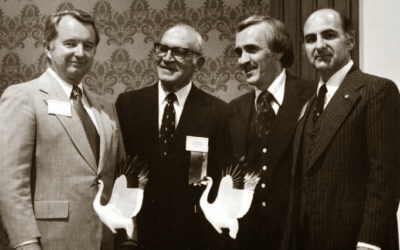Protecting wetlands
Wetland ecosystems provide significant benefits to fish, wildlife, and the economy. Approximately 60 percent of Tennessee’s wetlands have been destroyed due to historic mismanagement of these critical habitats. Tennessee Wildlife Federation works to restore wetland habitats statewide.
Why Wetlands?
of Tennessee’s wetlands have been destroyed.
Flood
Wetlands act as natural sponges that trap and slowly release flood waters.
of rare species use wetlands at some point in their life.

Wetlands provide critical habitat for numerous wildlife and plant species.
Bottomland hardwood forests are the most common type of wetlands in Tennessee and are abundant in the floodplains of streams and rivers.
Wetland ecosystems are often undervalued and underappreciated despite providing significant economic and ecological benefits. They help reduce damage from flooding, maintain water quality, replenish groundwater, store carbon, and provide important wildlife habitat. Wetlands also filter out sediment and chemicals from surface-water runoff.
Approximately one million acres of Tennessee’s wetlands have been destroyed due to historic land uses, impoundment, sedimentation, and urbanization. Restoring degraded wetlands and protecting existing wetlands—and the wildlife and plants that use them—is critical.
What we do for wetlands
1,200
of wetlands restored or conserved.
Wetlands restored by Tennessee Wildlife Federation are permanently protected with conservation easements.
5
of monitoring to measure success and long-term viability of restored wetlands.
Are you a landowner?
Interested in learning if your land is a fit for habitat restoration?
Give
Your generosity helps manage wildlife populations and restore habitats for a more vibrant Tennessee.
More Habitat Restoration
Federation Partners to Restore Cumberland Plateau Forest Habitats
Tennessee Wildlife Federation is excited to announce a collaborative project: Restoring Pine-Oak Forests in the Cumberland Plateau. Tennessee Wildlife Federation, in partnership with the Forest...
How to Bee
Beekeeping has exploded in popularity in recent years as more and more people become aware of the plight of pollinators. And what many are discovering is that honeybees are fascinating insects and...
Clark Akers and the Fight for the Obion River Basin
The following is a classic David and Goliath story, adapted from Dr. Marge Davis’ book Sportsmen United: The Story of the Tennessee Conservation League. It remains one of the greatest grassroots...



